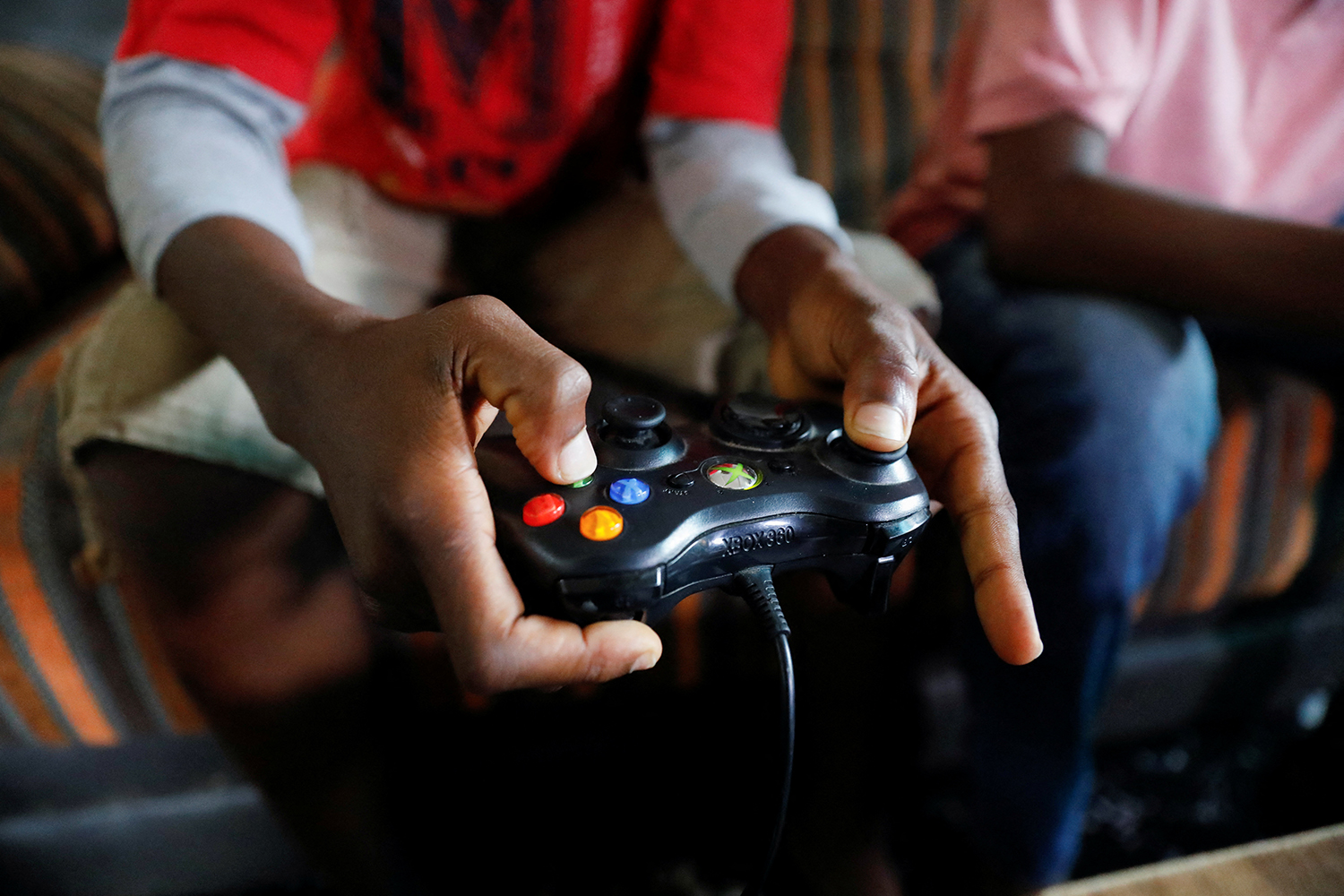Africa is the future of the global gaming industry.
In 2024 alone, the continent added 32 million new gamers. This growth—six times faster than the global average—is attributed to the rapid adoption of internet-connected smartphones, with over 92 percent of Africa’s 350 million gamers playing exclusively on their phones. And with the continent set to be home to 40 percent of the world’s youth by 2030, it is shaping up to be the largest potential market for gaming and digital entertainment on the planet.
A survey of African gamers found that 62 percent spend money on gaming, building games, or making in-game purchases. In 2024, Africa’s gaming industry surpassed one billion dollars in revenue for the first time, marking 12 percent year-on-year growth. Forecasts project this figure to reach ten billion dollars by 2033. However, without urgent and sustained investment in local talent, homegrown intellectual property, and digital infrastructure, the continent risks remaining primarily a consumer of global games—not a global game-producing force in its own right.
It’s about more than entertainment
The creative talent is already in Africa. For example, Nigeria’s Maliyo Games has released more than forty titles, trained hundreds of developers, and reached millions of downloads (the studio’s multiplayer card game Whot King alone saw more than three million downloads). The studio’s games draw fans across Africa, the United States, Asia, and the Middle East. Meanwhile, Ghana-based Leti Arts has built a cross-media universe spanning games and graphic novels. Kenya’s Usiku Games runs the country’s first dedicated mobile games studio, with more than fifty thousand downloads of its flagship title. And South Africa’s 24 Bit Games has helped launch global hits such as Neon White and Twelve Minutes.
These studios are building games with global cultural relevance. When Disney launched its Afrofuturist series Iwájú, it partnered with Maliyo Games to create the official mobile tie-in. The result is the fast-paced cooking simulation Iwájú: Rising Chef, which brings Nigerian food, slang, and humor to a global audience. Cameroon’s Kiro’o Games built Aurion: Legacy of the Kori-Odan, a fantasy role-playing game where players draw power from ancestral energy to fight injustice, using hand-drawn art and Cameroonian languages. And in Africa’s Legends by Leti Arts, players take on the role of the Dogon warrior queen Tolo Sagala and other historical figures.
But African gaming is more than entertainment—it is also a powerful tool for civic education and social impact. In December 2024, Maliyo Games partnered with the US Consulate General in Lagos and US-based Global Game Jam on a Game Up Africa Jam for Democracy to tackle misinformation through interactive storytelling. Usiku Games launched Cyber Soljas, a mobile adventure designed to teach young people about online safety, and ChopUp’s Ebola Strikeforce educates players about preventive health measures. South African studio Sea Monster Entertainment partnered with Capitec Bank to create Livin’ it Up, a financial-management game that has been played around four million times by 160,000 unique users, helping players understand budgeting and saving.
Infrastructure woes and funding struggles curb potential
Much of this progress has been made despite limited financial backing. For instance, only 59 percent of African studios report receiving any external investment. Game development is expensive and can be slow to monetize, especially in mobile-first markets where most users expect free-to-play access. To illustrate this challenge, among those who downloaded ChopUp’s games, only 15 percent made in-game purchases.
Many studios still rely on personal savings, small grants, or outsourced work to survive, with just 46 percent of African game developers earning any income from their work. Cameroon’s Kiro’o Games raised $305,000 over five years through equity crowdfunding to develop Aurion—a major win, but far below what’s needed to scale globally. Similarly, mobile-games publisher Carry1st raised $27 million in one of the few major fundraisers in the African gaming sector. However, Carry1st focuses on distribution, not development, partnering with firms like Activision to adapt Call of Duty: Mobile for African players and enable in-app purchases in rand, shillings, or naira.
Capital, however, is only part of the challenge. Unstable electricity, high data costs, and limited broadband access regularly disrupt both development and gameplay, especially outside major cities. In Zambia, for example, mobile data costs remain at least twice the global average, while frequent power outages force some African gaming studios to rely on generators. Compounding these infrastructure issues, formal training remains scarce. With few university programs focused on game design or interactive media, Maliyo Games, for example, has built an in-house training pipeline to fill the gap, and it now sources up to 75 percent of its team this way. Meanwhile, most African governments offer little regulatory clarity or public funding support.
Africa’s gaming industry deserves international investment
Unlocking Africa’s gaming potential will require coordinated action. Investors need to move beyond one-off grants and embrace early-stage risk—through blended finance, regional incubators, and longer runways for studios building original intellectual property. Programs such as Accra-based incubator Meltwater Entrepreneurial School of Technology have shown what’s possible by backing teams such as Leti Arts with seed funding, training, and support. The big players—Sony, Activision, and Epic, for example—should follow suit, not just by localizing global hits, but also by funding African-made games and getting them in front of international audiences, including by tapping into the growing gaming console market on the continent. This approach has paid off for African music and TV with platforms such as Spotify and Netflix, and it can scale to gaming too.
On the talent side, educational institutions must begin treating gaming as a serious engine for creating productive, high-skill jobs and economic growth. Wits University in Johannesburg now offers a full degree in game design, while Kenya’s Africa Digital Media Institute has partnered with French gaming school Rubika to offer training through the CreaTech Animation and Game Lab in Nairobi. Regional accelerators such as GameUp Africa are also helping plug gaps, providing long-term training in coding, design, and production to early-career developers, often feeding directly into studios such as Maliyo Games and Usiku Games.
African gaming is poised to level up. The developers and audience are ready, and the stories being told are unlike anything else in the world. With the right investment, infrastructure, and visibility, Africa won’t just be a player in the global gaming industry—it will be the one pushing it forward.
Tom Bonsundy-O’Bryan is a fellow at the ’s Africa Center and Meta’s head of misinformation policy for Europe, Middle East, and Africa.

The Africa Center works to promote dynamic geopolitical partnerships with African states and to redirect US and European policy priorities toward strengthening security and bolstering economic growth and prosperity on the continent.

Image: Udom Idongesit, 13, uses a gaming controller as he plays a Vikseen Virtual video game, in his home in Ogun State, Nigeria June 23, 2022. Photo via REUTERS/Temilade Adelaja.









